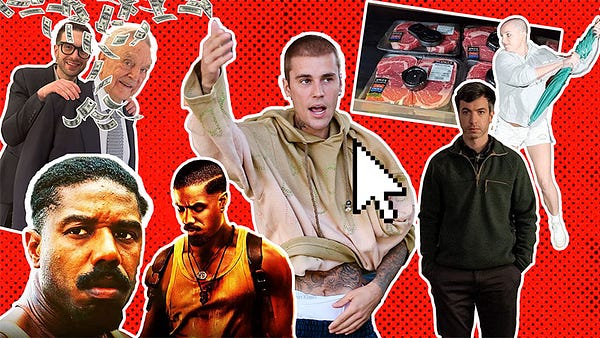
This article is taken from The Free Press’s daily newsletter. To get the best of the news delivered to your inbox every morning, sign up here:
For decades, Las Vegas was the only place in the country where sports betting was legal. And once upon a time, the men who ran the major sports leagues were terrified of betting. The great fear was that it would corrupt the players, who would be tempted to fix games.
Turns out, those fears were valid. In the last year, there’s been a spate of gambling-related controversies. The NBA is investigating Toronto’s Jontay Porter for taking himself out of two games to boost gamblers betting against his performance. Major League Baseball’s best player, Shohei Ohtani, is under a cloud after his Japanese translator used $4.5 million of Ohtani’s money to pay off gambling debts. (For the moment, at least, the translator is believed to have stolen the money from Ohtani, and he says he never bet on baseball.) And in 2023, the NFL suspended five players for betting on games in their own league.
Perhaps these controversies were inevitable. Because these days, professional sports have a lot to do with Vegas.
The dam broke in 2017, when the National Hockey League put a franchise in Las Vegas, and when the Oakland Raiders relocated to the city—where they play in a stadium where gambling takes place. The following year, a Supreme Court decision opened the doors to sports betting across the country; 38 states have since legalized it. Since then, online sports betting behemoths FanDuel and DraftKing have plastered their logos on the floors of basketball arenas and become major advertisers for televised pro sports events. And this year’s Super Bowl actually took place in the Raiders stadium—yes, the one where gambling takes place.
Sports betting has always been with us, and there’s a school of thought that says it’s better to do it out in the open than to place bets with guys who will break your kneecaps if you can’t pay up.
But I don’t agree. I’m sorry to sound like a prude, but gambling is a vice that can ruin one’s life, and back when sports betting was illegal, there was less of it, which was a good thing.
This is especially true in the era of prop bets, which allow gamblers to bet on individual players—from how many three-pointers a center forward will score to whether a kicker will make the next field goal. “To half the world, I’m just helping them make money on DraftKings or whatever,” said Indiana Pacers star Tyrese Haliburton recently. “I’m a prop.”
Sadly, legal sports betting isn’t going away. All these bets help keep twitchy viewers watching in a culture that no longer has an attention span longer than five minutes. Those eyeballs make money for leagues and advertisers. And if they cost the suckers money, well, too bad.
Joe Nocera is a columnist for The Free Press and the co-author of The Big Fail. Follow him on X @opinion_joe. And read his last piece, “Boeing’s Dead Whistleblower Told the Truth.”














Remember Kids! Vegas wasn't built on winners.
I think most comments and articles lightly touch on or completely miss the most likely outcome of legalized sports gambling...sports are popular in large part because the score, and even individual plays, are the result of honest competition...this makes the sport exciting because of its unpredictability...as sports betting grows the outcome becomes less about the result of competition and more about the betting line...therefore, the thrill of victory and the agony of defeat is no longer trustworthy...I know sports are a business and business is about money...but...the competition to this point was believable...now...not so much...g.